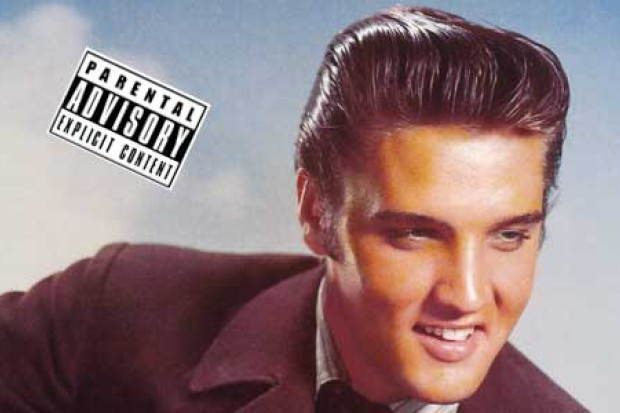
‘Powerless’ and ‘consenting’: A response to D. Vincent Twomey
‘Powerless’ and ‘consenting’ – different words perhaps, but Edmund Burke might have had a comment or two about just how close they could be. I used them both in a sentence contained in my essay ‘The Search for Samhita’ which seems to have caused upset to Vincent Twomey. At this point of the article I was attempting to highlight both the growing futility of Western organised religion and the danger of the domination of technology to contemporary society. The passage in question implied that the Church as a guiding moral force failed to abate the onslaught of two world wars and the resulting bestiality – ‘the scientific and technological developments in the twentieth century, under the powerless (consenting?) eye of the Christian Church, made possible the annihilation of maybe seventy million people between 1914 and 1945’.
The offending notion here is that of sanction, but the reader will, of course, observe that I placed a question mark after the word ‘consenting’. This was by way of merely raising a cursory question – to what extent, if any, did the Church consent to or endorse these events? Twomey is ‘taken aback’ and finds the ‘innuendo’ ‘disturbing’. Well, it was merely a passing query.
Although it is not exactly central to the essay, as he brings it up, let us look at the issue a little more closely in order to ascertain whether the question is even worthy of being asked. To support his argument Twomey has been rather selective. By way of defence of the Catholic Church’s role in its affairs with Germany during the Second World War, he cites Pope Pius XI’s encyclical Mit brennender Sorge published in 1939 ‘denouncing the regime’s theories of race, people and state as fundamentally anti-Christian’. Well, in actual fact, the encyclical did not condemn any regime by name, did not mention National Socialism or Hitler, and contained no explicit condemnation of anti-Semitism. Incidentally, by 1939 Hitler had been in power six years. In light of what was widely known of his regime Mit brennender Sorge would seem to have been far too little far too late.
Twomey does not mention, however, the so-called ‘Hidden Encyclical’ – Humani Generis Unitas – the one Pius XI wanted to issue in light of the ever-growing racism in Germany but died before he could achieve it. Judging by the extant drafts, this was a more explicit reflection on Judaism and anti-Semitism but was immediately suppressed by the following Pontiff, (Pacelli) Pius XII, whose infamous deafening silence right throughout the years of Fascist brutality remains perhaps the most disturbing implication of consent. Surely, the infallible head of a church that claims the highest moral and spiritual authority on this earth might have made at least one explicit condemnation of anti-Semite annihilation? When nine thousand Jews are being exterminated each day, how long does the politesse of diplomacy remain free from culpability?
I could go on offering more facts but will limit myself to suggesting that interested readers should explore the extremely significant implications for the development of Fascism of the Lateran Concordat of 1929 (with Mussolini) and the Reich Concordat of 1933 (with Hitler), and that the Church’s approval of satellite Fascist states like Croatia and Slovakia should be examined. Obviously, the Church viewed Communism as the great evil and in its zealous battle against the ‘Reds’ (Russia, Mexico, Spain) it was willing to go to bed with, turn a blind eye to, remain silent about (call it what you will) those Fascist regimes which caused havoc throughout Europe and attempted the cruellest genocide in human history. Perhaps I am not too far off the mark after all to merely raise the question of consent.
Although avoiding any mention of the Church’s links to Fascism (Franco’s Spain being exemplary), Twomey is happy (and correct) to highlight Heidegger’s extraordinary attachment to Nazism (whose intolerable silence in the face of Fascist slaughter curiously echoes Pius XII’s). That many influential intellectual illuminati have displayed great moral shortcomings remains a perennial enigma and Twomey is right to stress this. Sartre’s myopia in relation to the Gulag and Chinese human rights offences can be equally considered a form of consent. But to disregard a philosopher’s theories on the basis of certain obvious moral deficiencies is like dismissing Picasso’s oeuvre on the underlying principle that he was a rampant womaniser. By the same rationale we would also have to reject the work of Plato, Voltaire, Frege, Wagner – the list goes on.
But I really don’t wish to loose the central point of the essay. Notwithstanding Heidegger’s connections to National Socialism, I merely used his fraglich/fragwürdige concept to clarify my ultimate consideration – that through the worthy questioning, exploration and appreciation of art, we can invest in a state of development and growth that pertains to our own consciousness. This is not ‘self-contained’ and ‘immanent to itself’ as Twomey would suggest, but rather the very opposite. I am not arguing for some kind of secular nihilism but rather to examine the development of human consciousness through art. We have not even begun to explore the depths of human consciousness – its expanse and potential (which theologians from the past and Quantum Theory physicists of today tell us) is boundless. That is what I mean by the ‘process’ being the ‘answer’ and what Borges meant by that process as ‘saving the world’. The very suggestion that art, our relationship with and to it, may provide the only viable process for developing consciousness and spirituality will, I am sure, disconcert both preservers of the ‘faith’ and ‘post-modern liberals’. The politicisation of religion and the technologisation of modern civilisation may provide an ‘order’ within which to conduct society. However, I am not convinced that they offer a feasible way forward.
Published on 1 July 2004
Benjamin Dwyer is a guitarist and composer and the author of 'Different Voices: Irish Music and Music in Ireland'. He is Professor of Music at Middlesex University's Faculty of Arts and Creative Industries.













